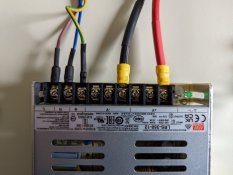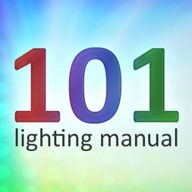My question relates to running power to the PSU's. I have read mixed things where it seems some people are doing it themselves while others have qualified electricians handling this part of the setup. Thoughts? I have run a large static display for years so I have heaps of heavy duty extension leads that would serve the purpose but just wanted to check I was doing the right thing first.
Navigation
Install the app
How to install the app on iOS
Follow along with the video below to see how to install our site as a web app on your home screen.
Note: This feature may not be available in some browsers.
More options
You are using an out of date browser. It may not display this or other websites correctly.
You should upgrade or use an alternative browser.
You should upgrade or use an alternative browser.
Newbie question about power
- Thread starter flash11
- Start date
Katekate
Senior elf
people say you should use a sparky for that. I dont know anyone that does.
Notenoughlights
500,000+ twinkly lights
If you are worried about causing a fire, electric shock, etc, get a qualified registered person to perform the work and to provide you with a certificate if it is required for the work done.
If your insurance company requires electrical work to be done by an electrician for them to cover you should something bad happen (Would probably imagine 100% of the time this is true) do the above.
If you know what you are doing, can test, and verify that your work is safe then, I don't see any problem. It's only 3 wires to a power supply, not an entire house you're wiring up.
If your insurance company requires electrical work to be done by an electrician for them to cover you should something bad happen (Would probably imagine 100% of the time this is true) do the above.
If you know what you are doing, can test, and verify that your work is safe then, I don't see any problem. It's only 3 wires to a power supply, not an entire house you're wiring up.
My first year was last year. I was worried about it too but gave it a go - checking, double and triple checking as well.
Got some great suggestions from here as well in terms of using cable crimps and the right types of crimping tools.
I ended up using some U crimps that fit the PSU and then heat shrinking over the top of them for the AC ones - clearly I didn't do the same level of effort for the DC ones.

Got some great suggestions from here as well in terms of using cable crimps and the right types of crimping tools.
I ended up using some U crimps that fit the PSU and then heat shrinking over the top of them for the AC ones - clearly I didn't do the same level of effort for the DC ones.

Legally, it depends on the state. Qld for example, does not allow any 240V wiring, including in appliances to be DIY. NSW, however, allows it, for single phase under a certain amperage.
You would need to research the laws in your particular state.
Ultimately, it is always worth getting checked over by a competent person, to ensure no one gets zapped, that everything is done correctly, and no fires ensue.
You would need to research the laws in your particular state.
Ultimately, it is always worth getting checked over by a competent person, to ensure no one gets zapped, that everything is done correctly, and no fires ensue.
Where does it say that? I'm a sparky and as far as I know there is nothing that is allowable for "DIY" in the electrical industry in Australia. Happy to be proven wrong thoughLegally, it depends on the state. Qld for example, does not allow any 240V wiring, including in appliances to be DIY. NSW, however, allows it, for single phase under a certain amperage.
You would need to research the laws in your particular state.
Ultimately, it is always worth getting checked over by a competent person, to ensure no one gets zapped, that everything is done correctly, and no fires ensue.
Adsy
Full time elf
I would be surprised if most properties weren't fitted with RCD these days.
Check your connections, use securable insulated connectors to their terminals ie no bare wires.
If you have any doubts whatsoever, seek a professional
Check your connections, use securable insulated connectors to their terminals ie no bare wires.
If you have any doubts whatsoever, seek a professional
Here is something that might be of interest:
https://www.finnleyelectrical.com.a...the following electrical,Changing light bulbs
At least you are allowed to change a light bulb.
In Canada we can wire our own place. You need to follow the code and in some instances get an electrical permit and as a result an electrical inspection. You just have to remember to turn off the breaker. Australia runs on 220-240Vac whereas we also have 120Vac circuits. But if you do not know what you are doing there is always the chance of electricution.
https://www.finnleyelectrical.com.a...the following electrical,Changing light bulbs
At least you are allowed to change a light bulb.
In Canada we can wire our own place. You need to follow the code and in some instances get an electrical permit and as a result an electrical inspection. You just have to remember to turn off the breaker. Australia runs on 220-240Vac whereas we also have 120Vac circuits. But if you do not know what you are doing there is always the chance of electricution.
Notenoughlights
500,000+ twinkly lights
I like their Christmas lights section, so long as they are 12v or less. Sorry Bunnings, your lights require a sparky to install now.Here is something that might be of interest:
https://www.finnleyelectrical.com.au/what-electrical-work-can-be-done-without-a-license-in-australia/#:~:text=Within Australia, the following electrical,Changing light bulbs
At least you are allowed to change a light bulb.
In Canada we can wire our own place. You need to follow the code and in some instances get an electrical permit and as a result an electrical inspection. You just have to remember to turn off the breaker. Australia runs on 220-240Vac whereas we also have 120Vac circuits. But if you do not know what you are doing there is always the chance of electricution.
Fixed wiring is not allowed to be DIY anywhere in AU, this is governed by AS3000.... but things that "plug in" are considered appliances and the work allowed on them varies by state.
There are plenty of 240V based hobbyist kits around from three likes of Jaycar etc.
Now, the sale of an appliance requires it to be approved and/or inspected by an electrician to AS3760. So selling a pre-wired 240V controller may not be above board.
I note the link above is all relating to fixed wiring. All the examples they gone off what you can do is in relation to appliances (the pond pump one even says ”Just make sure that any wiring is done properly and safely before connecting the pump to a power point.”)
NSW fair trading - https://www.fairtrading.nsw.gov.au/trades-and-businesses/licensing-and-qualifications/electrical
(Emphasis Mine)
The last part highlighted in Blue is what allows us to work on the DC side.
The part highlighted in red allows us to work on the 240V side of the appliance.
There are plenty of 240V based hobbyist kits around from three likes of Jaycar etc.
Now, the sale of an appliance requires it to be approved and/or inspected by an electrician to AS3760. So selling a pre-wired 240V controller may not be above board.
I note the link above is all relating to fixed wiring. All the examples they gone off what you can do is in relation to appliances (the pond pump one even says ”Just make sure that any wiring is done properly and safely before connecting the pump to a power point.”)
Where does it say that? I'm a sparky and as far as I know there is nothing that is allowable for "DIY" in the electrical industry in Australia. Happy to be proven wrong though
NSW fair trading - https://www.fairtrading.nsw.gov.au/trades-and-businesses/licensing-and-qualifications/electrical
(Emphasis Mine)
You need an electrical licence before you can do any electrical wiring work in NSW, regardless of the cost of the work and regardless of whether the work is residential, commercial or industrial.
Electrical wiring work means the actual physical work of installing, repairing, altering, removing or adding to an electrical installation or the supervising of that work.
An electrical installation means any fixed appliances, wires, fittings, meters, apparatus or other electrical equipment used for (or related to) conveying, measuring, controlling and using electricity in a particular place. It does not include:
- any electrical equipment (other than a meter) used, or intended to be used, to generate, transmit or distribute electricity that is:
- owned or used by an electricity supply authority, or
- located at a place that is owned or occupied by such an authority
- any electrical article connected to, and extending or situated beyond, any electrical outlet socket
- any electrical equipment in or around a mine
- any electrical equipment operating at not more than 50 volts alternating current or 120 volts ripple-free direct current
- any other electrical equipment, or class of electrical equipment, prescribed by the regulations.
The last part highlighted in Blue is what allows us to work on the DC side.
The part highlighted in red allows us to work on the 240V side of the appliance.
Yeah the side is fine, that is considered extra low voltage and anyone can work on that.Fixed wiring is not allowed to be DIY anywhere in AU, this is governed by AS3000.... but things that "plug in" are considered appliances and the work allowed on them varies by state.
There are plenty of 240V based hobbyist kits around from three likes of Jaycar etc.
Now, the sale of an appliance requires it to be approved and/or inspected by an electrician to AS3760. So selling a pre-wired 240V controller may not be above board.
I note the link above is all relating to fixed wiring. All the examples they gone off what you can do is in relation to appliances (the pond pump one even says ”Just make sure that any wiring is done properly and safely before connecting the pump to a power point.”)
NSW fair trading - https://www.fairtrading.nsw.gov.au/trades-and-businesses/licensing-and-qualifications/electrical
(Emphasis Mine)
The last part highlighted in Blue is what allows us to work on the DC side.
The part highlighted in red allows us to work on the 240V side of the appliance.
But if it requires you to wire anything that is connected to a general outlet I don't think it's allowed.
Not that I care anyway

